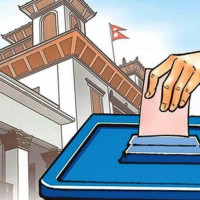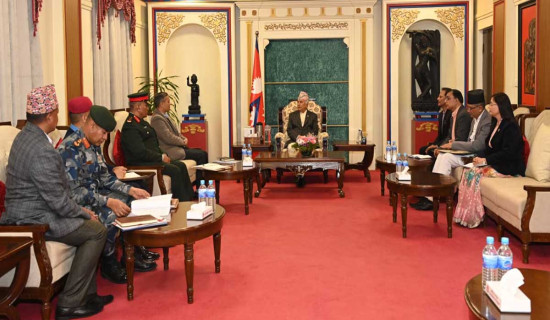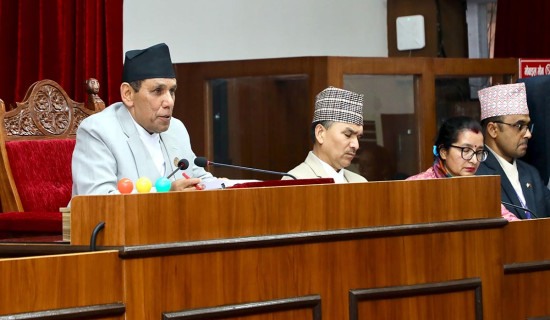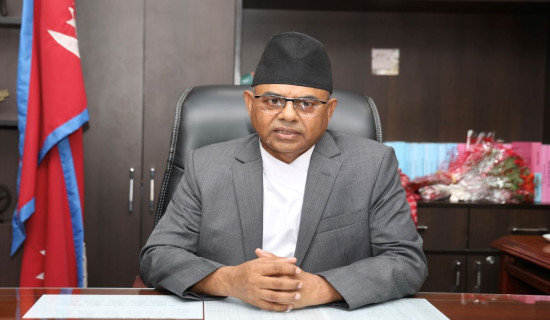- Saturday, 14 February 2026
Urgency Of Local Economic Development
The twenty-first century is the age of economic supremacy over politics. Unlike in the twentieth century, political doctrine no longer guides the shape of economic course; rather, it is economic necessities that dictate political behaviour. Most of the political upheavals in the last two and a half decades have been rooted in economic causes. People revolt when nations fail to deliver inclusive economic benefits to their citizens in a sustainable manner. For instance, the underlying factors behind the recent Gen Z revolution were the high level of unemployment in the country and frustration with the political establishment for its failure to deliver tangible economic prosperity that creates jobs and employment for the youth.
The political machines have been touting the progress made on many fronts of politics, such as federalism, democracy, inclusive governance, and others. However, this has not brought economic yield to the people. Nepal's per capita income is just about $1,500 in nominal terms, which is below the South Asian average. Nepal is the second-poorest country in South Asia, after war-torn Afghanistan. Its annual volume of Gross Domestic Product is just about $43.13 billion. The country is highly dependent on remittances. The political parties are overwhelmed with socialist doctrines that believe in the distribution of economic resources without much effort towards production. The main problem is that distributive policies will not resolve the economic deprivation without enlarging the economic cake.
Tremendous pressure
The recent Gen Z revolution has put tremendous pressure on Nepal to bring tangible progress on the economic front. Economic development is indispensable for sustaining liberal democracy. Nepal needs inclusive growth that improves the livelihood of people equitably. Such growth, on one hand, can liberate socio-economically backward people from extreme forms of destitution, deprivation, and discrimination. On the other hand, it provides equal opportunities with a level playing field. Local economic development is a form of inclusive economic development. It is a process by which the local government, in partnership with the private sector and community, works to build local economic capacity able to create jobs and employment opportunities.
A local economic development (LED) plan is an initial step before embarking on the journey of building a local economy, offering a crucial roadmap for a local government to systematically implement economic development initiatives. This plan offers strategic direction for areas such as business development, skill enhancement, industrial growth, niche product promotion, livelihood improvement, and sectoral development. The plan embodies a long-term economic vision that aligns with national goals. For instance, Nepal has established the vision of "Happy Nepali, Prosperous Nepal" as its long-term aspiration, and the local plan should contribute to achieving this.
An implementable LED plan clearly outlines the strategies, priority activities, associated budgets, timelines, and measurable indicators of success. As a part of the local government's mandatory periodic plan, it is designed to encompass and address many cross-cutting issues. While preparing the plan, the local government must integrate a thorough analysis of the local economy's strengths and weaknesses, alongside external challenges and potential opportunities. This requires a careful examination of the political, economic, social, technical, legal, and environmental conditions prevalent in the local area.
Local governments can adopt multiple strategies to enhance local economic dynamics within their jurisdiction, which can also generate positive externalities for adjoining areas. They can support the creation of an environment to develop new businesses, attract new businesses to their area with good policies, help build the capacity of local businesses for more investment, and also support the upgrading of existing businesses. Business development has been one of the pivotal strategies for local economic development, as it helps to build an entrepreneurial society. The attraction, retention and creation of business activities are crucial for local revenue mobilisation as well.
The LED thrives in a good locality. Locality development is the fundamental responsibility of a business-friendly local government. Building economic infrastructure, such as local roads, electricity, and drainage, supports local industrial growth. The development of a central business district, land use zoning, shopsteading – providing land, buildings, or financial incentives to attract and establish new retail shops and businesses in a specific area – and townscaping – deliberate design and beautification of a town's public environment, housing, and neighbourhood improvement – are essential. Locality development reduces transportation costs, achieves economies of scale, and provides a safeguard from external competitive threats.
Human resource development
Many local governments have invested substantially in human resource development through skill development, technical and vocational education, and a focus on Science, Technology, Engineering, and Mathematics (STEM). Skills can often lead to success faster than a formal academic degree. People with good skills, such as plumbing, welding, bricklaying, painting, carpentry, mechanical work, and maintenance of electrical equipment, are less likely to be unemployed. Local governments can also help people in local areas to upgrade their skills. The Council for Technical Education and Vocational Training (CTEVT) provides a range of skill-based training.
The government has been supporting local governments to promote local economic development. The Ministry of Federal Affairs and General Administration has introduced an Innovative Local Economic Development (ILED) programme that provides conditional grants to local governments to implement LED initiatives. This ministry also provides conditional grants through the Innovative Partnership Fund initiative under the Provincial and Local Governance Strengthening Programme. Development partners in Nepal must reengineer their support towards local economic development, which is essential for the legitimacy of their presence.
(The author is a former secretary of government of Nepal.)



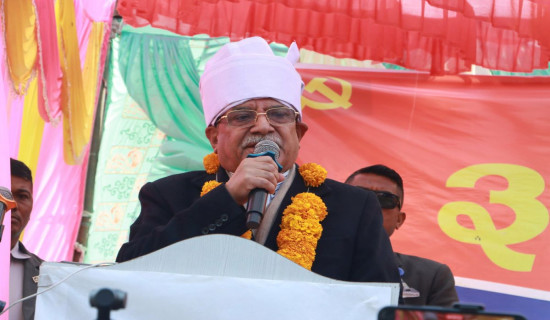
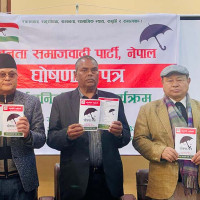
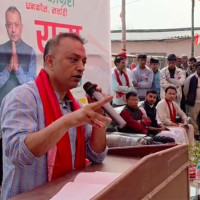
-original-thumb.jpg)

